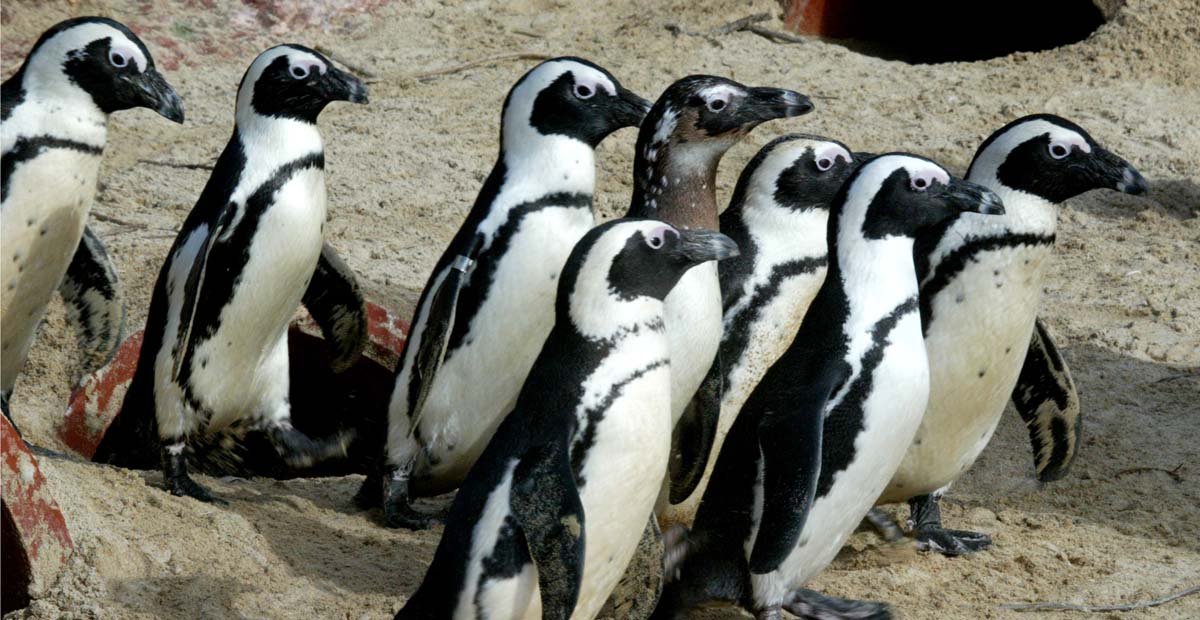Torquay’s coastal zoo has sent 20 penguins to Parque Zoologico de Lagos in Portugal. It’s all in the name of species conservation, but – like anyone going overseas this summer – they all had to have their travel documents in order.
Zoological collections don’t buy and sell animals – they loan, donate or swap. And, as awe-inspiring and exciting as nature is, the conservation of species is a serious world of acronyms, committees and computer spreadsheets.
The penguin move was a recommendation from the European Endangered species Programme for African penguins. There are two levels of breeding programme: the European Endangered species Programme (or EEP) and European StudBook (ESB). Studbooks for zoo animals started as early as 1923 (with European bison) – the idea came out of horseracing.
The paperwork needed to move a penguin to Portugal includes vet certificates, a letter from a vet, a letter of origin and a letter of donation. They also need their TRACES certification, or Trade Control and Expert System, a web-based veterinarian accreditation used by the European Union for controlling the import and export of live animals and animal products.
The birds travelled by road in a temperature-controlled van, taking a ferry across the Channel before being driven on to the Algarve, a total journey of 1700 miles. The group – two breeding pairs and a collection of younger birds – is starting a new colony. Clare Rugg, Living Coasts Operations Manager/Curator, said: “They arrived and all went for a swim. They seem to be fine after their journey.”
Paulo Figueiras, the Curator of Parque Zoologico de Lagos, commented: “I am so excited, they are lovely birds! They will be a success at our Zoo. When they arrived, they spent so long in the water….they go in the pool a lot. Thank you so much!”
Living Coasts is part of a global network of zoos involved in conservation breeding projects for rare and endangered species. Torquay’s coastal zoo and aquarium is a member of the British & Irish Association of Zoos & Aquariums (BIAZA), which promotes the values of good zoos and aquariums. There is a similar organisation – the European Association of Zoo & Aquaria (EAZA) – at European level and at a global level there’s the World Association of Zoos and Aquariums (WAZA).
While there’s plenty of paperwork, the admin is inevitably computer-based. ZIMS – the Zoological Information Management System – manages collection information and is used by curators and registrars.
There are around 150 EEPs. They provide intensive population management, collecting information on the status of all the animals of the species in European zoos and aquaria, producing a studbook, carrying out demographic and genetic analyses and producing a plan for the future management of the species. The aim is to avoid inbreeding and keep the zoo-based gene pool fresh.
Recommendations are made each year on which animals should breed, which individual animals should go from one zoo to another, and so on. There are 140 ESBs. They monitor populations, collect data on births, deaths and transfers, produce the studbook, review the success of the species and assess management needs.
Why do zoos go to all this trouble? In a word, conservation. With rare species there can be a lack of suitable animals to pair up – but animal experts need to get the science right with every pairing. For more information go to www.livingcoasts.org.uk or ring 01803 202470.




























